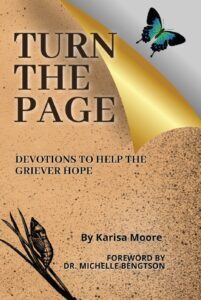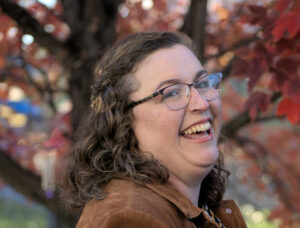Kathy Collard Miller's Blog
September 14, 2024
Shame Develops from Feeling Alone and Helpless

Matthew 26:50-54 tells us,
Then they came up and laid hands on Jesus and seized him. And behold, one of those who were with Jesus stretched out his hand and drew his sword and struck the servant of the high priest and cut off his ear. Then Jesus said to him, “Put your sword back into its place. For all who take the sword will perish by the sword. Do you think that I cannot appeal to my Father, and he will at once send me more than twelve legions of angels? But how then should the Scriptures be fulfilled, that it must be so?”
Jesus tells angry Peter to stop trying to protect what God doesn’t want protected.Jesus is not angry, helpless nor isolated. Jesus does not agree with any subtle message from the bystanders indication that he is shameful. Those in the crowd after watching Peter over-react might think, “Jesus isn’t too smart. He picked some out-of-control guy to represent Him. Doesn’t He know He’s caught and can’t escape?”
Jesus reacts calmly telling Peter amidst all the confusion the His Father is protecting His Son, just not the way Peter thinks of protection. If Jesus asked, the Father could send twelve legions of angels. (A legion is a division of the Roman army including more than 6,000 men; therefore, Jesus could have asked for the help of 72,000 angels.) Regardless whether this is symbolic or meant to be exact doesn’t matter. It is enough. More than enough. Jesus refuses to receive even heavenly help because He is sold out on God’s plan, even though it means His own sacrificial, excruciating death and shameful treatment.
Jesus would soon hang naked on the cross, fully exposed and called evil names. He might have felt shameful but He knew it wasn’t true.
Unfortunately, most of us aren’t aware when shameful feelings are creating anxiety and angry reactions within us. Two of the powerful characteristics of shame are the isolation and helplessness we feel. The dirtiness of shame makes us want to hide, be invisible, and unknown. We find it almost impossible to think anyone could be on our side or understand our battle. Jesus knew all that yet stayed true to His Father’s plan without any kind of anger.
We can confidently believe God will supply our strength to resist anger because He is with us. His empowering comes from us seeing life with an eternal perspective: our guilt and shame are already destroyed and we are viewed as holy and blameless in God’s eyes (Ephesians 1:4). If 72,000 angels are needed to deliver us from our shame, God would cheerfully send them. But the only thing needed is one sinless Son of God dying on the cross and rising from the dead.
We see the theme of Hebrews 12:1-3: Therefore, since we are surrounded by so great a cloud of witnesses, let us also lay aside every weight, and sin which clings so closely, and let us run with endurance the race that is set before us,looking to Jesus, the founder and perfecter of our faith, who for the joy that was set before him endured the cross, despising the shame, and is seated at the right hand of the throne of God. Consider him who endured from sinners such hostility against himself, so that you may not grow weary or fainthearted.
Jesus didn’t want deliverance (as Peter cuts off the servant’s ear) because otherwise He would not fulfill His Father’s salvation plan. He also would be without the joy not only of pleasing His Father but of providing for believers who will be welcomed into His kingdom.
Be assured, if it is better for you in your fight against shame to have 72,000 angels fight for you, God will provide. God never wants you to buy into the lie you are on your own and there is no hope. The Holy Spirit within you offers you your greatest hope and help.
 This blog post is an excerpt from “Anger Management—Jesus Style”, which will be published late this month/August.
This blog post is an excerpt from “Anger Management—Jesus Style”, which will be published late this month/August.
September 3, 2024
Book Drawing! “Turn the Page–Devotions to Help the Griever Hope” by Karisa Moore

Karisa Moore’s heartfelt devotional offers solace and guidance to those navigating the turbulent waters of grief. Based on her personal journey through the loss of her son, this sixty-day journal is a sanctuary for anyone mourning a loved one. Each day’s entry provides a blend of reflections, questions, and practical activities designed to nurture healing and renew faith. Drawing deeply from Christian principles, Karisa encourages readers to embrace hope and find strength in their journey toward healing.
That’s why I’m very passionate about offering Karisa’s book in a book drawing. She offers wisdom about a very difficult topic with loving, sensitive inspiration.Continue reading to learn how to enter the book drawing.
Here’s a taste from one of the devotions in her book.
Give Gives a Common Language of Hope to Help Usby Karisa MooreOur stories may look different, but interwoven in each, is a choice to grieve with hope. My grief included anger, insomnia, and overwhelming fear of future loss. Yours may include self-doubt, ruminating on all the minute details of what if, guilt, fear, or depression. Grief will look different for each of us, but God gives a common language of hope to help us move forward through grief.
In the intro to each devotion, I look back on grief from the perspective of one who has been grieving for ten years. “Turning My Page” is adapted from my original public journal as I tried to encourage Jonathan’s friends and family by grieving with transparency. Here, you will find my thoughts, experiences, and personal study of scripture during the first days of grief.
You’ll see Isaiah 61 referenced in three different devotions. They are life verses that constantly remind me, suffering and sorrow are not the end of God’s story. May God gift you a core scripture to meditate on (repeatedly bring to mind) when tempted to despair. “Turning Your Page” sections include prompts, questions, suggestions, action steps, and prayers to encourage and spur you toward hope as you process your grief
“…it is my eager expectation and hope that I will not be at all ashamed, but that with full courage now as always Christ will be honored in my body, whether by life or by death” (Philippians 1:20, ESV).
I turned the first page on my son’s death the day after his funeral, declaring to my friends with a whisper that I would not be defeated by grief.
Though my online presence had been minimal, I suddenly found a community of grievers comprised of not only my friends and family but Jonathan’s friends as well. Social media became my platform for journaling out loud as I began to share my grieving-with-hope journey.
My brain, caught in the throes of shock, could not process any new information. God had developed a foundation of prayer, scripture, and friendships eighteen years before the crisis of his illness and suicide. Those habits were crucial in grieving with hope. I could not gain ground in my grief, but I held fast to the truth I already knew about my God. I resolved to stay present, no matter what tears or pain might come.
Turning My Page (my online journal)My heart hurts beyond belief. I try to read scripture, but my mind fails to absorb it. Lord, a bit of “osmosis” would be good right now. My goals for the day are going to the gym, having at least one laugh, and sharing this page.
Turning Your PageMaybe scripture reading is difficult today, or all you can do is cry out in your pain. Take the first breath. Hydrate. Be present in your circumstances. Shock is a gift. Loss of this magnitude is too much for your body to process. Let your mind and body have free space to work according to need and capacity.
List one thing that you physically need right now.What do you know about the character of God?Find a few encouraging scriptures, either ones you know or some in this book. Dwell on those verses and repeat them out loud. Write them down. Hold fast to what you already know to be true.Pray with Me:
Lord, I am in shock. May you be enough for me today. Amen. (Playlist: “Held” by Natalie Grant)
Karisa, thank you for sharing your journey with us and making a copy of your book available in the book drawing.To enter the drawing, make a comment on the blog post. Only USA addresses can win. Drawing ends on Monday evening, September 9th, 2024. Karisa Moore knows what it’s like to cry out to God with groans words cannot express (Romans 8:26). Losing her son to suicide makes her a passionate resource as an author, blogger, podcaster, photographer, and soul-care speaker. She is expanding our mental health vocabulary to include Christ-centered hope. Karisa embraces life alongside her husband and two living children. She loves long hikes, photography, and great stories.
Karisa Moore knows what it’s like to cry out to God with groans words cannot express (Romans 8:26). Losing her son to suicide makes her a passionate resource as an author, blogger, podcaster, photographer, and soul-care speaker. She is expanding our mental health vocabulary to include Christ-centered hope. Karisa embraces life alongside her husband and two living children. She loves long hikes, photography, and great stories.
August 27, 2024
How Do You Label Your Anger? I Say: “He Drives Me Nuts”
 I Say, “He Drives Me Nuts”
I Say, “He Drives Me Nuts”Many times we don’t realize we are feeling angry. We give it other names, other identities. We might blame others. I love this meme because in the situation of someone calling when I want to do something, I can easily justify that they shouldn’t bother me. I justify my irritation and think it’s not hurting anyone.
One of my concerns about using the word “Anger” in the title of my soon-to-be-published book (Anger Management–Jesus Style) is that people will think my book doesn’t apply to them. We can think:I don’t get angry, I just get miffed.I don’t get angry, I’m just aggravated at times.I don’t get angry, I’m just irritated.I don’t get angry, I’m upset.
Even those mild reactions can be harmful and hurtful–to others and ourselves. And at the core, we may be distrusting God who is sovereign and in charge of everything in our lives, even the obstacles. Like someone calling us.
Want to know one of my “fun” labels? I say, “he drives me nuts.”Here’s my story and of course the culprit is my husband, Larry. Poor guy.
Larry says, “Why do we need to buy more eggs? We have plenty.”
Frustration and anger begin to rise within me. I tell myself, “Anger is crouching at the door. Lord, show me why this bothers me so much.”(Remember God’s words to Cain?) I slow down and get in touch with the feelings of danger. Larry is judging my planning capabilities.Then I ask myself, “Lord, when did something happen that felt dangerous about my planning capabilities?”
The Holy Spirit shines a spotlight on that third-grade little girl. “Oh wow, the molestation. In effect, I didn’t plan well. I judged myself as putting myself in a dangerous position. I was stupid to not see the danger.”
Then I ask the Holy Spirit, “Lord, is that true I put myself in that position?”He assures me I could never have seen what was coming. Even if I’d known I would be molested, what happened does not define my worth and value. If in a situation I do choose stupidity or sin, then I can ask God to forgive me and cleanse me. My worth in Christ still doesn’t change. But when I was in third grade, not only did I not see the danger coming, but I also could not have done anything to prevent it.
I take a deep breath and rehearse who God says I am. If the feelings don’t dissipate completely, I continue to review the truth and reject the lies.
I now have the courage to explain to Larry what I’m planning and regardless of whether he agrees with me, I am safe in Jesus’s loving arms. If we run out of eggs, I’m still not stupid. (And yes, we bought more eggs!)How do you feel or what do you think when you see a book with the word “anger” in the title? I’d love to know.
August 24, 2024
Soon! Book Birth of “Anger Management–Jesus Style”!

Jesus was not angry but we may be about our own births and beginnings. After all, sometimes we wish growing up our family had more money, or lived in a bigger house, or we weren’t bullied, or … any number of things.
Of all children, Jesus was entitled to be upset about the circumstances of His birth and beginnings. But He did not get angry, not even irritated!
As I wrote about this for my soon-to-be-published book Anger Management–Jesus Style, I was humbled to recognize how Jesus didn’t resist His Father’s plan for His humble beginnings.
As you continue reading, let yourself reflect on what bothers you about your past and what Jesus was willing to suffer so that He could fulfill His Father’s magnificent plan.
As God, Jesus was boundless, unlimited, and uncontained. Yet, he was seeded within his mother’s miniscule egg and travelled through her fallopian tube to become secured in her uterus and then fertilized by the Holy Spirit.
As God, Jesus was expansive, substantial, unbounded, and all powerful. Yet within her body he was restricted, limited, isolated, enclosed, and helpless.
As God, Jesus was total wisdom and understanding who designed the concept of the birth canal he squeezed through to be born. Yet, his godly perfections were thrust into the bloody and shaking hands of inexperienced parents.
As God, Jesus was the creator who had developed the concept of his mother’s breast. Yet his thirsty body was dependent upon a source that could have run dry.
As God, Jesus surrendered to his Father’s plan of being given the common Jewish name of Jesus. Yet, in the throne room an endless multitude of angels called him magnificent, holy, wonderful, Prince of Peace, mighty God, and everlasting Father.
As God, Jesus did not demand to be identified as the Son of God because he was secure in his identity. Yet, two humble long-time servants of the temple, Simeon and Anna, spontaneously recognized him as Messiah while he was in the form of a newborn.
As God, Jesus had innumerable animals sacrificed to him throughout the history of the Old Testament. Yet, for his dedication, his parents may not have understood he was the Lamb of God, and they could only afford the least costly of offerings, two turtle doves.
As God, Jesus is sovereign over every affair of man. Yet, he and his parents were threatened by Herod as if he were a common criminal.
As God, Jesus could call down angels from heaven for his protection. Yet, he allowed himself to be entrusted to his parents’ powerless care when Herod murdered children his age.
As God, Jesus was in submission to no one. Yet, he subjected himself to sinful parents and siblings who were at times impatient, unwise, and resistant to his mission.
Such a summary should leave us breathless in awe recognizing Jesus’s surrender to His Father’s good plan. He could have resisted at any point and become angry about being disrespected. You and I most likely would have.As you meditate on those truths, think about how you and I are easily tempted to think we deserve perfect treatment, circumstances, and acknowledgement. When we are regarded or treated less than perfect, we believe we are justified to respond in ungodly ways—even though Jesus responded perfectly.
Which of the statements (the unbolded/ not italicized part) listed above about the way Jesus was treated would you relate to?If you are not signed up to receive my blog posts by email and learn of the publication of my next book, Anger Management–Jesus Style, go to www.KathyCollardMiller.com and subscribe. 
August 17, 2024
I Felt Old This Morning but I Resisted Feeling Shameful
I arrived at my appointment for my balance testing with a physical therapist at the location where I’d had my hearing tested. I arrived 45 minutes early for my appointment because there’s so much construction going on. I wanted to make sure I wasn’t late.
So I did. I walked in to check in at the desk. As usual they asked for my birth date which always makes me feel old.
How could being born in 1949 not feel old?! The two young women at the desk hadn’t even been born yet. Chances are their parents hadn’t even met each other yet.
And my gray hair gives me away. I was glad at least I had some make up on!!!!!
Then one of the gals who was checking me in on her computer said, “Oh. Your appointment is at another location.”
What? At first I wanted to be my usual offended self. How dare they make a mistake! But for some reason I held my tongue and thought, “I don’t remember that but chances are the computer isn’t wrong.”The two young things looked at me again and I knew what they were thinking…”Yup, another old person getting their schedule messed up.”
I stood paralyzed for a moment and then said, “Okay. Thanks.”
I walked out and the familiar feelings of shame began to descend upon me as I started the car. I could envision the “girls” laughing and chuckling about me. They must think I never get anything right.But NO!!!!! I thought, “No! I’m not going in through the dark door of shame!”
For me, shame is the feeling of feeling yucky, something-wrong-with-me, and now everyone knows it. I’m exposed. My hurtful past feeds these lies, as I was sexually harmed and never felt good enough. Don’t get me started on the list.
But NO!!!! “This time I’m not going there.”And then the most delightful thought filled me with gratitude. I didn’t know God was nudging me gently to get there early to be able to make it to the different location twenty minutes away. As I drove, the awareness of God’s sweet consideration for me blossomed within me bringing tears. Yes, He could have somehow made me look again at the paperwork and made the correction. But this inconvenience was far more powerful in showing God’s consideration of me getting what I needed.
God’s consideration of me! Now that is the opposite of deserving shame.I arrived at the different location with plenty of time and waited to be called in. I had a great appointment with a caring physical therapist and I’m motivated to follow through on new exercises.
I praise God for His consideration of me and my needs. And in God’s power, I resisted the temptation to give in to shame.
If you aren’t aware of your own unique feelings and messages of shame, pay attention. They are often subtle and we aren’t aware of them.
 In my upcoming book, Anger Management–Jesus Style, I have a chapter about how shame tempts us to feel better if we react in anger. I’m so eager for that book to be published. Please look for it.
In my upcoming book, Anger Management–Jesus Style, I have a chapter about how shame tempts us to feel better if we react in anger. I’m so eager for that book to be published. Please look for it.
August 14, 2024
Maybe Martha Wore an Invisible “S” on Her Tunic

I wonder if Martha, the sister of Mary, was the dependability queen in her town, Bethany. I can just imagine at the Women of the Temple Committee meeting for the upcoming women’s luncheon event, the chairperson asking, “Now who can we get to cater the lunch?”
Everyone looks around and another woman asks, “Where’s Martha?”
Mary speaks up, “Oh, she’s at the meeting for the Temple Benevolence committee.”
A third woman raises her hand. After being called on by the chairperson, Lydia says, “Ask Martha. She’ll do it.”
Could Martha have worn an invisible “S” on her tunic? No, not for Superman, although many most likely called her Superwoman. But “S” for steadfast and its twin sister, dependability. Why else would Martha have been so crazy busy when Jesus came visiting? Remember the story?Now as they went on their way, Jesus entered a village. And a woman named Martha welcomed him into her house. And she had a sister called Mary, who sat at the Lord’s feet and listened to his teaching. But Martha was distracted with much serving. And she went up to him and said, “Lord, do you not care that my sister has left me to serve alone? Tell her then to help me.” But the Lord answered her, “Martha, Martha, you are anxious and troubled about many things, but one thing is necessary. Mary has chosen the good portion, which will not be taken away from her.” Luke 10:38-42
What motivated Martha? Of course we’ll never know conclusively her heart’s motive. But as women, so many of us are like her because we have chosen the same technique to gain approval and applause: busyness and productivity. We know Martha didn’t have to do everything she did because Mary, who was equally considered the hostess, didn’t. I have no doubt Mary did what she was supposed to do and then chose to abide at Jesus’s feet.
If Martha were like me, she thought of “one more thing,” “one more dish,” “one more decorating touch,” “one more …” Did she think, “Just wait until Jesus sees this. He’ll feel so important and valued.” I would have.
But Jesus loves Martha’s soul well. He doesn’t want her to carry the heavy yoke she puts upon her own shoulders.
Jesus doesn’t need anything to make him feel important or valuable. He only seeks His Father’s approval and applause.
In His concern for Martha, Jesus woos her by pointing out the result of her busyness (which is not needed): anxiety, anger, critical spirit, feeling abandoned, even blaming Jesus for not making Mary do what Martha thought she should do.
She accused Jesus of not caring for her. Most importantly, her motive was to provide rather than abide. Jesus was saying, “I love you too much. Please look at what you’re doing and why you’re doing it. Come and abide.”He says the same things to us. Rest in His provision and care.
(This adapted excerpt is from my book, Pure-Hearted: The Blessings of Living Out God’s Glory.) 
Print:
https://www.amazon.com/Pure-Hearted-Blessings-Living-Gods-Glory/dp/1946638420/
Kindle:
https://www.amazon.com/Pure-Hearted-Blessings-Living-Gods-Glory-ebook/dp/B078GJB124/
AUDIBLE:
https://www.amazon.com/Pure-Hearted-B...
August 9, 2024
Last Chance! 99cent Kindle SALE of “Choices of the Heart” ENDS SOON!

To give you another taste of my women’s Bible study on the women of the Bible, I’m including here Lesson 10 about Martha and Mary on the topic of “Practicing God’s Presence.”
Here is the Table of Contents for “Choices of the Heart.” CLICK HERE to check it out on Amazon.
Rebekah and Rahab: Believing God’s SovereigntyJob’s Wife and the Woman of Shunem: Trusting God’s GoodnessJezebel and Deborah: Using God’s Power and InfluenceNaomi and the Syrophoenician Woman: Praying PowerfullyGomer and the Forgiven Woman: Taking Hold of ForgivenessSarah and Lydia: Obeying God’s PlanSapphira and the Samaritan Woman: Choosing HonestyBathsheba and Hannah: Dealing with TemptationMiriam and Leah: Struggling with Jealousy and DiscontentMartha and Mary: Practicing God’s PresenceNow, here’s Lesson 10 on Martha and MaryLife is a challenge. We long for peace and knowing God is helping us and is with us. But we’re so easily distracted by responsibilities, problems, and people. Sometimes we think we’ll only be at peace when we’re in a “quiet time” or some other spiritual activity. It may seem those spiritual times are the only way to sense God’s presence. Or those moments are when God is most pleased with us—when we’re doing something “super spiritual.”
But the truth is God promises to be with us every moment regardless of whether we sense him and regardless of what we’re doing. We can “practice the presence of God” whether we’re diapering our baby or driving the carpool or leading a high-stress corporate meeting. God is with us, and everything we do in obedience to him is serving him. Not just the seemingly “spiritual” activities.
Yet we can still judge ourselves inadequate in the “spiritual” department if we compare ourselves to others. Some women just seem to have a natural bent toward being aware of God’s presence and easily choose to have a set-apart spiritual time. Others of us struggle. We’re too hyper. We have too much to do. We can’t concentrate. There always seems to be so many obstacles.
Describe when and how you feel most harried about life, most calm, and most “”Is serving others, especially visitors, a source of stress or joy for you?The sisters, Martha and Mary, who are close friends to Jesus, can relate. They seem to have opposite personalities and preferences. We can learn from them about how to incorporate spirituality with service and every aspect of life.
Martha and Mary
Focus on Luke 10:38-42 for the following questions. Also, read John 11:1-44 and John 12:1-3 for background information. What basic and opposite personality traits do Martha and Mary have?What kind of attitude is exposed in Martha’s question?How was Mary insensitive to Martha’s concerns?Knowing the differences in personalities can enhance relationships. There are numerous ways to identify personality or temperaments, but a basic one separates them into four categories. Here are a few generalities about those four:
Expressive: highly values fun, is talkative, and loves a lot of time with people.Driver: highly values control, likes to “tell” people what to do rather than ask questions, and believes his/her decisions are always right.Amiable: highly values peace at any cost, is an effective mediator, is quiet, and sees the positive in everyone and everything.Analytical: highly values perfection, is detail oriented and a great organizer but second-guesses decisions.If we don’t understand God created different personalities for his purposes, we can easily:
judge ourselves less than or the opposite, superior.be discontent with our own personality, because another personality seems more attractive or useful.intensely hate our personality’s weaknesses and think “God made junk.”judge another personality as inferior.We must remember each of these temperaments have strengths and weaknesses. God intended the strengths to be used to serve him and the weaknesses to cause us to need him. We might not always appreciate God’s design, but he knew exactly his purposes in creating you.
How does Psalm 139:1-6, 13-16 confirm those truths?Why do you think Martha talks to Jesus rather than talking directly to Mary to assist her with the food (Luke 10:40)?Why do you think they had trouble communicating?What would have been a constructive way to solve this problem?There can be all sorts of blocks to good communication, and sometimes women have even more difficulty than men. Men, generally speaking, prefer to state the facts and not get emotionally involved. But women crave relationship, and if a friend seems to indicate the relationship is not important by not communicating, she can take offense and avoid or reject contact. Plus, each temperament communicates in a different way. Martha and Mary are definitely struggling in their relationship, and the stress of hosting Jesus, whom they want to please, creates more tension.
Do you relate more to Martha or Mary?What can you imagine Jesus would have said to each of them? What advice would you give them?What did Jesus actually say about Martha’s activity (Luke 10:41)?What distracts and worries you in the following areas?AreaDistracted because:Worried about:Hospitality:Extended family:Friendships:Ministry to others:Children:Husband/Boyfriend:What do you think Jesus meant by “but only one thing is necessary” (Luke 10:42)?
When Jesus said, But only one thing is necessary, one possible meaning could be: Prepare one dish instead of many. Come listen to me. If true, he may have been suggesting her expectations are too high, and she is trying to perform for him instead of receiving his unconditional love. Of course, we are going to serve Jesus out of love for him, but maybe her motives included believing if she didn’t perform he wouldn’t love her. Or maybe she wants to look like a good hostess before others. Those impure motives are what feed anger, discontent, and contentiousness. Obviously, her priorities are out of kilter.
We can do the same thing if we believe service always equals or communicates love. Whether for God or for others, we must know what the other person values. Jesus values her presence more than lots to eat.If you were to focus more fully on Jesus’ perspective, would there need to be any changes in your attitude, worry, or distractions?What insight into Jesus’ attitude toward women do you gain from Jesus’ encouraging these two women to spend time in his presence?
In their culture, women were only servants. They weren’t supposed to be with the men at all. But Jesus upset the cultural norms over and over again, valuing women just as much as men.
Do you hear a harsh rebuke or a gentle suggestion in Jesus’ reply to Martha (Luke 10:41-42)?Do you most often hear God’s “voice” as rebuking or wooing?How we hear God’s voice in our hearts can indicate a lot. Maybe we were scolded more than praised. Maybe we grew up thinking we didn’t deserve any praise, and we only expected to be reprimanded and not acknowledged for our efforts. Maybe currently we’re in a hurtful or damaging relationship.
You might want to “try out” different tones as you speak Jesus’ words aloud. What emotion does a soft and encouraging tone bring up inside you? Also, try to say Jesus’ words with different words to communicate several possible meanings. Jesus is saying, Oh, sweetie, please don’t worry about making a lot. We’ll be full after one of your delicious dishes. I’d rather you chose being at my feet like your sis has. Come and join us now. I love you even if we starve in your house.
Do you think Jesus is saying Martha is wrong to serve or women shouldn’t have company over? Explain your answer.What did Jesus say is the better choice?What benefits do you suppose Mary experiences at the feet of Jesus?What good qualities do you see in Martha?In Mary?Which would you like to incorporate into your life from each woman?Focus on John 11:1-44 for the following questions. What kind of faith and dependence upon Jesus is demonstrated in the sisters’ message to Jesus (v. 3)?What actions do Martha and Mary each take (v. 20)?Are these compatible with their personalities?Martha is assertive in talking to Jesus—to the point she almost seems to be rebuking him. Yet how is her faith also revealed (vv. 21-22)?Who does Martha believe Jesus to be (v. 27)?If Jesus asked you the same question of verses 25 and 26, how would you answer?Mary’s words to Jesus are the same as her sister’s initial response (v. 32). They regard Jesus as both Messiah and as a friend with whom they can be honest in the sharing of their grief. Why do you think Jesus had to give a direct invitation to prompt Mary to come see him (vv. 28-31)?
Throughout the Gospels, we often see Christ involving others in miracles. How does Jesus involve others in the making of this miracle (v. 39), and what do you think was his motive?Jesus is not only a good teacher—he is an effective mentor. Stories abound in the Gospels about how he delegates responsibilities to others as a means of training and coaching them. He invites disciples and followers to stretch beyond their own skills or confidence so they depend upon his confidence and his power in them.
Even now, he is doing the same thing in our lives when he opens doors we don’t feel we have enough faith to open, or are qualified or knowledgeable enough to handle. There can be any number of blocks and obstacles whispering lies and saying the Holy Spirit can’t be strong enough in us to overcome. We can instead trust if he assigns us a task or responsibility, he empowers us to fulfill his desire. He’s not ignorant of our inadequacies and weaknesses. Instead, he has every confidence his power in us is sufficient.
Jesus indicates the sisters still don’t believe fully what he can do, yet he fulfills his plan anyway (John 11:40). When your faith is weak, how is Jesus’ response meaningful?With three words, Christ raises Lazarus from the dead. How do you imagine Martha and Mary feel as they see Lazarus walk toward them, most likely with a huge smile?Have you ever had similar feelings after seeing God solve a problem in your life or do something you couldn’t have imagined or designed? Describe what happened.
Focus on John 12:1-3. This passage shows a scene similar to the one in Luke 10:38-42: Martha is serving, and Mary is at Jesus’ This time, though, there is something missing from the previous incident. Describe.What changes do you think have occurred in Martha’s heart, maybe as a result of seeing what Jesus did for them?What lessons do you learn from Martha and Mary about finding a connection in your life between the practical and the spiritual?How can you practice God’s presence while accomplishing God’s work?My Precious Princess and Daughter:I know your life is hectic. My Son faced the human obsession of busyness when he lived on earth. I didn’t originally design life to be full of unfulfilled expectations and hurried running around. The garden of Eden’s atmosphere was peaceful beyond belief.
But now, you face this problem, my Daughter. Whether through other people’s demands or the ones you put on yourself, life seems like a treadmill run at high speed. Maybe even a rollercoaster.
I want to assure you your activity doesn’t make you look better in my eyes. I love you without question and accept you as my own, regardless of your accomplishments—or lack of them. Yes, I do have specific things for you to accomplish, but they do not make me love you more. I already love you as much as I possibly can.
Whatever the pace of your life, turn to me at any time. I am available every single moment. Call out to me and ask for my help, comfort, wisdom, or anything you need. You don’t need to have a formal quiet time to know I’m with you. I am with you constantly, and I promise never to forsake you or leave you.
Succeed in my Spirit’s power, but take time first to confirm I’ve called you to an opportunity. Fulfill my plans with a pure heart of wanting my glory. Your choices must come from your heart.
Lovingly,Your heavenly Father, the Kingfor “Choices of the Heart.” CLICK HERE to check it out on Amazon.
August 7, 2024
99 cent Kindle Sale of “Choices of the Heart”–a Bible study on women of the Bible

Before we study Rahab in this post, I have great news!
Choices of the Heart, my women’s Bible study on the women of the Bible, is on Kindle sale for 99 cents for a limited time. In the last blog post, we looked at Rebekah. Now we will feature Rahab. As you’ll see from this study, taken from Choices of the Heart, you’ll see how this book is designed for personal and group study.
Here is the Table of Contents for “Choices of the Heart.” CLICK HERE to check it out on Amazon.
Rebekah and Rahab: Believing God’s SovereigntyJob’s Wife and the Woman of Shunem: Trusting God’s GoodnessJezebel and Deborah: Using God’s Power and InfluenceNaomi and the Syrophoenician Woman: Praying PowerfullyGomer and the Forgiven Woman: Taking Hold of ForgivenessSarah and Lydia: Obeying God’s PlanSapphira and the Samaritan Woman: Choosing HonestyBathsheba and Hannah: Dealing with TemptationMiriam and Leah: Struggling with Jealousy and DiscontentMartha and Mary: Practicing God’s PresencePart 2: Rebekah and Rahab: Who Believed More Strongly about God’s Sovereignty?Now it’s time to give Rahab her side of the story. See if you would vote for her or Rebekah? Who trusts God’s sovereignty most strongly.
Remember Chuck Swindoll’s definition of sovereignty:“our all-wise, all-knowing God reigning in realms beyond our comprehension to bring about a plan beyond our ability to alter, hinder, or stop.”
(This excerpt is from my women’s Bible study “Choices of the Heart” about different biblical women. You’ll find this post includes questions for you to ponder and answer.)
The story of Rahab reveals God’s sovereign hand in many ways. She is an example of a pagan woman who puts her life in danger to follow God. Her story is profoundly revealing of how deep our trust can be. God divinely juxtapositions two spies to find a woman who has never walked in God’s ways. He sovereignly knows she will be willing to sacrifice everything in order to respond to Him.
Try to enter into her dangerous circumstances even though you may know the end of the story. She didn’t know how her situation would end. Yet she trusted in God’s sovereign hand, which was revealed little by little.
You don’t know the “end” of the story you’re living, but in His sovereignty, God does. You can live in trust and faith knowing He will reveal His plan and purpose for you little by little.
Read Joshua 2:1-24, 6:22-25. The Israelites are getting ready to move into Canaan, the Promised Land. Jericho is the first city they must conquer. Joshua sends two spies to check out the city. How are they protected (2:1-7 cf. 1:1-9)?What occupation is Rahab involved in (2:1)?One of the mysteries of this story is how the Bible doesn’t tell us how or why the two spies stay with Rahab. But author and speaker Liz Curtis Higgs has an interesting thought. “Where better to lie low than in a place with lots of traffic, where questions weren’t asked, and strangers came and went at all hours? Perfect.”
The most important thing to remember about this mystery is God responded to the fledgling belief of a woman who needed him desperately: a sinner needing a Savior God. We should feel more secure knowing no sin is too big for God’s saving grace—even the sins of a prostitute running her own home business.
Rahab lies to protect the spies (Joshua 2:4-6). In your opinion, is lying ever justified?If so, under what conditions?If not, why not?The Israelites were camping nearby, only about seven miles away. The spies would have stood out—their clothes must have been different. They had just crossed the Jordan River—maybe their clothes were still wet!
Everyone in town was talking about the threat. Rahab was smart to hide the men under the flax on the roof, because flax, when cut in the fields, is three to four feet high—easily high enough to cover the spies. After being cut down, flax is soaked in water for three to four weeks to separate the fiber. Then the fibers are dried in the sun on the roof before being spun into linen thread used for making clothing. Evidently, Rahab was an industrious entrepreneur with several businesses! Yet her dependence upon herself and her success did not prevent her from seeing God’s sovereign hand in the arrival of the Israelites.
But the big question of the hour is, did Rahab do the right thing lying about hiding the spies? The Bible doesn’t comment. We must remember she didn’t yet know the God who forbids lying. More significantly, she risked her life to hide these strangers without any assurance she would gain anything. Talk about a woman of faith. God had planted faith within her based on the comments about the Israelites she’d heard from travelers. She knew the Israelites were going to be successful and if she didn’t jump on their bandwagon, she would be destroyed like the rest of her people.
Although none of her fellow citizens responded in faith, Rahab did—and her family, because of her “testimony.”
Fear for her life may have been Rahab’s initial motivation for her faith in God. What other evidence do you see of her developing faith (Joshua 2:9-13)?Considering her past, why is this such a big step for her?Why is her plan dangerous?What do you think gives her the courage to carry out her plan?Rahab is acting with great courage because if she and the spies are caught, the spies might squeal on her under pressure. She is putting her whole being—and most likely her family’s—into the care of men based solely on a blossoming faith in their God. This is one gutsy lady!
All the inhabitants of Jericho hear the news of what God has done through the Israelites, like part the Red Sea, yet only Rahab responds with faith in Jehovah, the Lord.
If you had walked through Jericho, which person would you have identified as a likely candidate for faith?Most likely not a sinful woman such as Rahab. Yet, she is the one who did respond to “rumors” about God’s actions. God went to a great deal of trouble to bring her into the fold. His sovereign, gracious hand orchestrated everything needed to bring the truth to this needy and sinful woman.
What plan do Rahab and the spies create (Joshua 2:15-24)?This passage contains another clue as to why the spies could have easily found Rahab’s home. She lived on the wall of the city, an easy place from which to quickly reach the gates if they were discovered before they found safety. Jericho, like many ancient fortified cities, had two walls built twelve to fifteen feet apart. Wooden planks covered the divide, and a house was built on top of the wood. Then, windows would be available to look beyond the city walls.
Onto this window, Rahab placed the wonderful and saving scarlet cord to let the returning Israelites know which house was hers and to save herself and her family. Rahab’s scarlet thread signifies the Holy Spirit in our lives. Through the Spirit, who is our “seal” (Ephesians 1:14), he assures us of salvation and reminds us we are one of God’s forever children.
Many women are concerned about sins they committed before coming to know Christ, along with the sins they continue to struggle with. They wonder, Can God forgive and cleanse me from such wrong things? Can I be secure in Christ? Yes! A resounding yes! Because all sins are equal in God’s eyes, and he provided salvation for every one of them: past, present, and future.
On a geographical note, within a half mile west of ancient Jericho are limestone cliffs about fifteen hundred feet in height.These cliffs contain many caves where Rahab likely directed the spies to hide.A cord of scarlet thread is Rahab’s security (Joshua 2:18). What are the sources of security in various areas of your life?We can imagine Rahab’s worry as she wonders how everything will turn out. But she may have stared at the scarlet thread to fight against worry. The scarlet cord had to bring her and her family peace, reminding them they were safe and secure. Seeing the cord reminded them of God’s sovereign dealings with them and gave them security, knowing if He did so much to reveal Himself, He would keep His promise of deliverance.
There are many things in life we can depend upon for security. But they may not be related to dependence upon God’s view of us as a member of God’s family. Rahab could have depended upon money to bribe the spies to let her live. Rahab could have depended upon beauty to divert the spies’ attention. Rahab could have depended upon intellect to convince the spies to save her life.
Those are temptations you and I could face today. But just as Rahab depends upon her belief in God’s protection, we can too. We can seek God’s approval and not what society offers.Look at Joshua 6:22-25. The Israelites have defeated Jericho. What happens to Rahab and her family?Although the spies aren’t named in the biblical account (Joshua 2:1), one of them may have been Salmon. Why? Because Rahab marries him later (Matthew 1:5). At least our romantic hearts would like to think of love at first sight—even in a brothel! What an example of God’s sovereign hand accomplishing something unusual to show His might and power.
If faith gets us into God’s kingdom, and what we do (“works”) is the evidence of our faith (Ephesians 2:8-10; James 2:14-26), in what ways do you need to strengthen each of these areas?How do you express each now?Rahab not only had faith in God’s sovereignty—she took action. Our salvation isn’t dependent upon our works (Titus 3:5), because trusting Him is a gift from God. We say to God, I acknowledge I deserve to be on the cross because of my sins. But I believe You provided the substitute of Jesus so I can be cleansed and forgiven. I receive His death on my account. Now having you as my Lord and Savior, I can walk in your power on this earth.
What freedom we have to represent the Lord through the opportunities He gives us and to know He is transforming us more and more into the image of Jesus. Of course, Rahab didn’t know all she was “signing up” for in joining the Israelite camp and taking on a relationship with Jehovah God. And neither do each of us when we first receive Christ as our Lord and Savior. But Rahab learns and becomes Salmon’s wife. And so do we day by day and step by step. Our faith bears the fruit of action in obeying God and learning more and more about Him.
Read Hebrews 11:11, 31. Rahab and Sarah are the only women mentioned by name in the Hebrews “Hall of Faith” Why do you think God included them?For what characteristics would God include you?In what ways would you like your faith to grow?Rebekah tried to force God’s plan to happen her own way, whereas Rahab cooperated with God’s plan. What can you learn from each of them to help your trust in God grow, especially regarding the choices you make?Isn’t God gracious to provide biblical examples of those who made good choices and those who didn’t? We have both in the stories of Rebekah and Rahab. God’s sovereign touch is upon these women’s lives, yet they had a choice whether to recognize His work and how they would respond.
God’s control and power are surrounding every one of us, but we must look for His handiwork and then decide how we’ll respond. We can take Rahab as our mentor for opening our eyes to God’s work and will. And we will be blessed like she was.
(In every women’s Bible study in my Daughters of the King Bible Study Series, every lesson ends with a “letter from God.” Here is the one included in the lesson on Rebekah and Rahab).
My precious Princess and Daughter:I am in control. I am sovereign. I am able to make things happen the way I want. Yes, I do allow you to make your own choices. And I know you don’t fully understand how these concepts can operate side by side. But I’m able to work within and around the choices you make to cause my ultimate purposes to succeed. For this, you must trust me. Ask Me about your choices and plans. My wisdom is yours if you’ll ask.
Just look at My Son’s death and resurrection. His enemies thought they were acting on their own. Yet, while their choices revealed who they truly were, I made sure my words given to my prophets came true.
I want you to cooperate with my plans. When the people around you reject my leading, be assured, I am still in control. I will fulfill My plan. At times, I’ll ask you to help Me influence their lives, but don’t take responsibility for them. Their choices are their own, but I’m still in control. Trust me. I’ll use all things for your good.
Lovingly,Your heavenly Father, the KingSo which biblical woman trusted God’s sovereignty most? How would you like her to inspire you to trust God more?Click HERE to order the Kindle copy of Choices of the Heart for only $.99 (limited time).
August 5, 2024
Part 1: Rebekah and Rahab: Who Believed More Strongly about God’s Sovereignty?

Before we study Rebekah (and Rahab in the next post), I have great news!
Choices of the Heart, my women’s Bible study on the women of the Bible, is on Kindle sale for 99 cents for a limited time. In this blog post and in the next one, we will look at the women Rebekah and Rahab who are featured in the first lesson. The series is designed for personal and group study.
Here is the Table of Contents for “Choices of the Heart.”
Rebekah and Rahab: Believing God’s SovereigntyJob’s Wife and the Woman of Shunem: Trusting God’s GoodnessJezebel and Deborah: Using God’s Power and InfluenceNaomi and the Syrophoenician Woman: Praying PowerfullyGomer and the Forgiven Woman: Taking Hold of ForgivenessSarah and Lydia: Obeying God’s PlanSapphira and the Samaritan Woman: Choosing HonestyBathsheba and Hannah: Dealing with TemptationMiriam and Leah: Struggling with Jealousy and DiscontentMartha and Mary: Practicing God’s PresenceLesson 1Rebekah and Rahab: Who Believed More Strongly about God’s Sovereignty? Part 1: Rebekah (We will study about Rahab in the next blog post)Sometimes we wonder about God and the way He works. We begin to think we know better than He does, especially when He doesn’t work in other people’s lives the way we think He should. After all, change will be better for everyone!
Pastor and author Charles Swindoll defines God’s sovereignty as “our all-wise, all-knowing God reigning in realms beyond our comprehension to bring about a plan beyond our ability to alter, hinder, or stop.” Thinking of Pastor Swindoll’s definition makes us wonder why God doesn’t just make the world a place where nothing bad happens. And, of course, the real question is, why do bad things happen to me?
But think for a moment what would happen if nothing challenging or bad occurred in your life. Would you need God? Would you grow emotionally or spiritually? Ask yourself, when have I been closer to God and become a better person? Usually, we come by such closeness while we are in the midst of difficult circumstances. Of course, not always, but usually, if we seek God, we sense His love and care. Because of God’s sovereignty, He allows difficult circumstances and situations in our lives. If we can see all things as being allowed by Him, we will cooperate with His plan.
(This excerpt is from my women’s Bible study “Choices of the Heart” about different biblical women. You’ll find this post includes questions for you to ponder and answer.)
How do you define good choices and bad choices?What influences your choices?How do you feel when someone doesn’t make the choice you think they should?Our reaction to what happens around us can give us a clue as to whether we’re trusting God. If we’re feeling tense or angry or reacting with control and manipulation, we might want to ask, Do I really trust God’s sovereignty? Do I truly believe God is loving and good?
Rebekah and Rahab faced challenges and responded in different ways. The examples of their choices can help us recognize more of God’s sovereignty—His ability to make His plan happen so that His love and power are revealed. As a result, we’ll increase our trust in Him.
RebekahRebekah is the wife of Isaac and the mother of twin sons, Esau and Jacob. She doesn’t seem to have a sense at all of God’s sovereignty and power. She takes matters into her own hands. Unfortunately, such control doesn’t bring her the results she wants.
Scan through Genesis 25:23, 27-34; 27:1-28:5. As the older son, Esau should receive the inheritance according to custom. What had God determined would happen between the twins (25:23)?From Genesis 25:27-34, summarize what you observe about this family’s relationships and dynamics.Can you identify any of those same dynamics occurring in your family or relationships?Sometimes God seems contradictory. After all, didn’t He set up the rule stating the older son should receive the inheritance and the younger one be subservient? Yet, here He is commanding something different.
That’s because God has a bigger plan. As he predicted, Esau and Jacob become the beginning of two nations still at odds today: the Israelites and the Arabs (originally the Edomites). When Esau and Jacob were born, no one could envision the future, yet God knew the result.The amazing thing about God’s sovereignty is how He fulfills His plans and predictions, and yet people have a free will to make their own choices. And somehow, those choices are within God’s plan—a paradox stumping theologians even today.
What does Rebekah overhear (Genesis 27:1-5)?What wrong method(s) does she use to try to fulfill God’s plan herself (vv. 6-10)?Instead of her deceit, what godly reaction(s) could she have taken?Yes, God seems contradictory at times, but He knows the plans He has for our good and His glory (Jeremiah 29:11 and Romans 8:28). Let’s see how Rebekah responds to God’s “contradiction.”
Rebekah decides to correct the situation herself instead of trusting in God’s sovereignty and power. God had promised the elder son’s blessing would go to Jacob, but she had no confidence in God’s power to override Isaac’s poor choice.
Can you think of a time when you saw someone making a poor choice and felt compelled to step in to steer the situation in a seemingly “better” way, yet you didn’t seek God’s will? Or you didn’t take action, but your emotional response lacked grace and goodness? Now looking back, were you really trusting in God’s sovereignty?Think of other incidents where you are successful. A friend treats you with contempt, and you respond with grace. A child is disobedient, and you see how God disciplines yourself with patience. A family member disappoints you, and you offer the forgiveness God has given you. Someone gossips about you, and you remind yourself your value isn’t in their opinion but in God’s view of you.
In those times of failed or successful responses, think through what was going on within you. Did you reject or depend upon any Scripture? Did you recall any previous experience(s) contributing to your typical responses? What qualities of God did you cast away or rehearse?
These kinds of questions help us get in touch with our motives. They also help us be honest with our failures and successes rather than excusing ourselves or becoming proud.
What are Jacob’s misgivings about his mother’s plan (Genesis 27:11-12)?How does Rebekah respond to his fears (v. 13)?So often, when we do something to try to make life better, like Rebekah, we are actually making things worse. Rebekah thinks she is loving her beloved son, Jacob, “well.” She thinks she is doing something to make his life better. She thinks she is protecting him from being abused and from injustice. And certainly, at times, God will call us to protect and provide for people. But Rebekah isn’t responding in God’s power or in obedience to him. She never gives God a chance to correct the situation. She takes control herself.
Notice Jacob’s fear. What is Rebekah teaching her son about God and the way to deal with tension and injustice? Certainly not to trust God. She doesn’t pray or instruct Jacob on “how to deal with disobedient people in a godly way.” She doesn’t model the way to communicate because she never tries to talk to her husband (as far as we know). Instead, she gives her son the example of deception and distrust.
Yet if someone had asked her whether she loved Jacob and wanted the best for him, she most likely would have answered, Well, of course. Why else would I be doing this?
We also are not loving someone “well” when we rescue them from experiencing God’s discipline through the consequences of their poor behavior. We’re also not loving them in a godly way when we don’t trust God. We’re encouraging them to distrust him also.
Rebekah goes to a lot of trouble in her deception. What is the plan, and how does her plan turn out (Genesis 27:14-40)?How would you describe Rebekah’s character at this point? What kind of woman is she?What is one of the results of her plan (v. 41)?What is another of the consequences (Genesis 27:42-28:5)?From Genesis 26:34-35 and 28:6-9, what aggravation filled her life?If we could talk to Rebekah today, I’m sure she would defend her actions and sound convincing. She might say, I’m only helping God fulfill his own plan. God promised Jacob would be the recipient of the inheritance, and I’m only helping to fulfill the promise. If I need to use a little deception to make sure my son gets what he deserves, then, well, the end justifies the means.
Criticizing Rebekah in hindsight is easy. But don’t you and I also rationalize at times with the “end justifies the means” excuse? We can convince ourselves we’re merely claiming God’s promise and assisting the fulfillment of his promise.
How can we protect ourselves from falling into this self-deceptive trap? We must seek the godly wisdom and guidance of others to get an objective perspective. Rebekah could have taken into account her son’s reaction of fear to give her a clue as to what was happening. And she could have talked the situation over with her husband and trusted in the shield her submission would have been for her.
We can also pay attention to our inner compulsions. If we feel tense thinking of doing something, maybe we’re forcing our way. Depending upon God and walking in righteousness produces peace (Isaiah 26:3). If we are not experiencing peace, we may be taking matters into our own hands rather than waiting upon God’s timing and incorporating his methods.
Rebekah paid dearly for her distrust of God’s sovereignty. She didn’t realize Jacob’s escape wouldn’t be for just “a few days.” Instead, she never saw her favorite son again and died before Jacob returned many years later. And in the meantime, she found life almost intolerable because of her pagan daughters-in-law.
The consequences of distrusting God’s sovereignty were serious and significant in Rebekah’s life. God gives us her example as a warning.
In the next blog post, we will study about Rahab who should give us a better example of believing God is sovereign.
Remember to order “Choices of the Heart“
July 31, 2024
Book Drawing! “Beyond Me: Living a You-First Life in a Me-First World” by Kathi Macias

I think we all want to be selfless but it is a daunting thought. That’s why I’m excited to feature Kathi Macias’s book “Beyond Me: Living a You-First Life in a Me-First World.” Continue reading to find out how to enter the random drawing.
The good news is God wants us to enjoy the abundant life that comes from selfless living. Kathi’s book will inspire and energize us to desire to obey God and believe He will give us His blessings.
Beyond Me: Living a You-First Life in a Me-First World is a call to discipleship that goes beyond what we can accomplish in our own strength or abilities. It is a call to lay down all that we are and begin to walk in what God has purposed for us, depending entirely on His unlimited strength and ability.Here’s an excerpt from “Beyond Me” to whet your appetite.
The Price of Loveby Kathi Macias“But he who is greatest among you shall be your servant. And whoever exalts himself will be humbled, and he who humbles himself will be exalted.”—Matthew 23:11–12
As December drew to a close and transitioned into the new year, I found myself spending more and more time alonewith God, seeking Him for clear direction for the coming year. When that direction came in the form of a seven-word admonition, it was not at all what I had expected, or hoped, to hear: Somebody has to set up the chairs.
The first time I heard it, I shook my head, scratched it, and shook it again. Why would God make such a statement,and what did it have to do with me? Surely I had misunderstood. My heart’s desire was to write and publish the words He had given me, to speak and teach about His great love and calling for our lives. But the more I tried to convince myself that I had imagined those words—somebody has to set up the chairs—the more I knew they had been given to me by the God who says what He means and means what He says.
So I went into the new year believing God wanted me to be content simply helping others with their books and…well, setting up chairs at meetings so others could speak and teach. Without too much resistance, I accepted that and movedahead—until something happened that caught my attention and clarified my focus.
My mother lived with us until she “graduated to heaven” in 2011. She was a strong Christian and was mentally alert, but her mobility in her last years was limited. She was unable to do things most of us do with ease: drive to a doctor’s appointment, go to the grocery store, change the sheets on her bed, stand at the stove to cook a meal. Being her primary caregiver sometimes became stressful and time-consuming, particularly when I was trying to work all that into an already busy schedule. One day as I rushed around the house, trying to get as much done as possible before running an errand for my mom—all the time wishing I could just sit down at my computer and get some much-needed work done—I caught myself grumbling. Actually I was feeling sorry for myself. And I didn’t like the sound of it one bit.
“I’m sorry, Lord,” I whispered. “Forgive me for being so selfish and impatient. It’s just that I want so much to be working right now.”Somebody has to set up the chairs.
I was stunned. Is that what God had been trying to tell me earlier in the year—that I was in a season of service for my mother, someone who had spent many years of her own life taking care of me?
I felt myself relax as I began to understand God’s call to servanthood in my life—my personal call to live a you-firstlife in a me-first world. It wasn’t just about living selflessly so unbelievers would be drawn to Jesus. It was also about daily laying down my life, giving up the right to plan my days and order my steps, so that I could help others fulfill the needs of their day. It was about choosing to honor the sanctity of life, regardless of the personal costs, rather than selfishly guarding the quality and convenience of my life at the expense of others. And I realized that if I allowed a grumbling, complaining, me-first spirit to taint my service to others, including my mom, I was in danger of falling into the grip of the very culture of death I’d spent so much time writing and speaking against. I was on the verge of hardening my heart. Choose life!
God was calling me to a you-first season of “setting up chairs” for others, especially my dear mother, much as she once did for me. In a similar but much more profound way, Jesus did the same for all of us when He walked the lonely road to Calvary and willingly hung on that cross in payment for our sins, giving up His own earthly life so we might gain eternal life.
As I pondered the situation with my mother, the question before me was: would I humbly and graciously choose life and blessing . . . or death and curses? His way . . . or mine?
Somebody has to set up the chairs.
Thank you, Kathi!
I love Kathi’s hope-filled words. If God wants us to live more selfless lives, He will empower us just like He did Kathi. I trust you’ll want to purchase Kathi’s book and in the meantime, enter the drawing to win a copy of “Beyond Me,” by making a comment on this blog post. The drawing will end Tuesday evening, August 6, 2024. Only USA addresses can win. To purchase Kathi’s book go to
 Kathi Macias is an award-winning author of nearly 60 books. A popular speaker at writers’ conferences and women’s events, Kathi lives in Southern California with her husband, Al.
Kathi Macias is an award-winning author of nearly 60 books. A popular speaker at writers’ conferences and women’s events, Kathi lives in Southern California with her husband, Al.
Connect with her at https://www.kathimacias.com
Kathi’s book include both fiction and non-fiction. Click here for her amazon author page.



